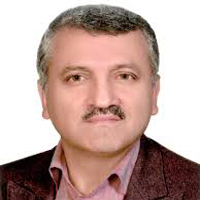Minimizing the total tardiness and makespan in an open shop scheduling problem with sequence-dependent setup times
We consider an open shop scheduling problem with setup and processing times separately such that not only the setup times are dependent on the machines, but also they are dependent on the sequence of jobs that should be processed on a machine. A novel bi-objective mathematical programming is designed in order to minimize the total tardiness and the makespan. Among several multi-objective decision making (MODM) methods, an interactive one, called the TH method is applied for solving small-sized instances optimally and obtaining Pareto-optimal solutions by the Lingo software. To achieve Pareto-optimal sets for medium to large-sized problems, an improved non-dominated sorting genetic algorithm II (NSGA-II) is presented that consists of a heuristic method for obtaining a good initial population. In addition, by using the design of experiments (DOE), the efficiency of the proposed improved NSGA-II is compared with the efficiency of a well-known multi-objective genetic algorithm, namely SPEAII. Finally, the performance of the improved NSGA-II is examined in a comparison with the performance of the traditional NSGA-II.
-
Developing a Multi-Objective Mathematical Model of a Vehicle Routing Problem for Fuel Transportation with Time Windows and Environmental Factors
Elham Jalilibal, Reza Tavakkoli-Moghaddam *, Hasan Javanshir
Journal of Transportation Engineering, -
Modeling Artificial Intelligence Of Things On Blockchain to Improve Supply Chain Security
Paria Samadi Parviznejad, Fatemeh Saghafi *, Reza Tavakkoli-Moghaddam, Javid Ghahremani-Nahr
journal of Information and communication Technology in policing,



